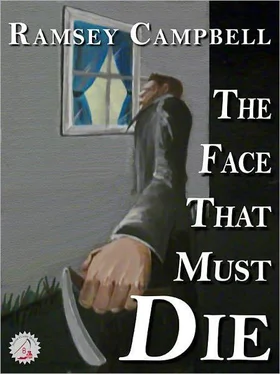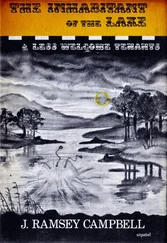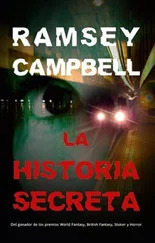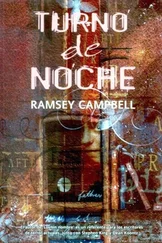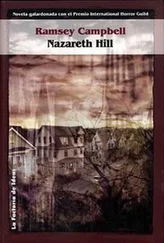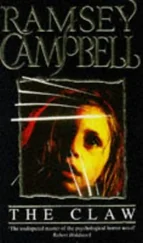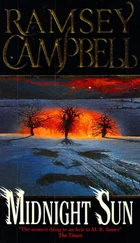Ramsey Campbell - The Face That Must Die
Здесь есть возможность читать онлайн «Ramsey Campbell - The Face That Must Die» весь текст электронной книги совершенно бесплатно (целиком полную версию без сокращений). В некоторых случаях можно слушать аудио, скачать через торрент в формате fb2 и присутствует краткое содержание. Жанр: Триллер, на английском языке. Описание произведения, (предисловие) а так же отзывы посетителей доступны на портале библиотеки ЛибКат.
- Название:The Face That Must Die
- Автор:
- Жанр:
- Год:неизвестен
- ISBN:нет данных
- Рейтинг книги:4 / 5. Голосов: 1
-
Избранное:Добавить в избранное
- Отзывы:
-
Ваша оценка:
- 80
- 1
- 2
- 3
- 4
- 5
The Face That Must Die: краткое содержание, описание и аннотация
Предлагаем к чтению аннотацию, описание, краткое содержание или предисловие (зависит от того, что написал сам автор книги «The Face That Must Die»). Если вы не нашли необходимую информацию о книге — напишите в комментариях, мы постараемся отыскать её.
The Face That Must Die — читать онлайн бесплатно полную книгу (весь текст) целиком
Ниже представлен текст книги, разбитый по страницам. Система сохранения места последней прочитанной страницы, позволяет с удобством читать онлайн бесплатно книгу «The Face That Must Die», без необходимости каждый раз заново искать на чём Вы остановились. Поставьте закладку, и сможете в любой момент перейти на страницу, на которой закончили чтение.
Интервал:
Закладка:
A grubby bus to Cantril Farm arrived. Its grimy windows looked painted with fog. Downstairs people were smoking, despite the notices. You could get away with anything these days.
He sat, cramped into himself by the oppressive babbling. Friends in high places! They called that filth friendship! And their arguments were so pitiful. They tried to make out that because animals did it, it was natural: they wanted to behave like animals. They were a cancer on the human race. Perhaps their behaviour was the source of cancer. So much money was spent on cancer research, yet nobody thought to look at the obvious. Couldn’t they see that filth must breed worse filth? What men and women did together was bad enough.
The bus groaned through Tuebrook, past ragged gaps where streets had been ripped out as though they were infected teeth. Homosexuals must be close as Jews, protecting one another from normal people. Something had to be done about them before they took over completely. They ought to be put on an island where they couldn’t contaminate anyone else – except that that was too good for them: no doubt they’d enjoy romping about naked all day.
Here was West Derby Village, blurred by the coated windows. Among the gleaming semi-detached houses, creamy white stone lions flourished flags on the gateposts of a park. The first time he had ridden this route, having accepted rehousing in Cantril Farm, that glimpse had delighted him. Cantril Farm had sounded like countryside: he’d thought that was where he was going.
Melwood Drive was lined with trees that soon fell behind, making way for council flats followed by an army barracks. At least there couldn’t be any homosexuals in there: soldiers were men. Nevertheless the sight depressed him. The long low buildings with their regimented windows reminded him too much of Cantril Farm.
And here it was: home. He sniggered bitterly to himself. Within seconds Cantril Farm had closed around him, nothing to see in any direction but pebble-dashed walls, anonymous boxes for keeping people in, nothing to distinguish them but graffiti thick as vines. Over the lower roofs, tower blocks stood like guards. The estate looked like its purpose: to make everyone the same. Its name had tricked him into living here. It would be a good place to imprison all the homosexuals. That would soon teach them how to behave.
Over Christmas there had been no buses. He had been trapped in Cantril Farm. Yet compared with his situation now, that had been easy to bear. Never before except in nightmares had he felt so helpless. Frustration oozed through him like poison; its sourness filled his mouth. He gripped the bar of the seat in front of him until his whitened fingers trembled. What could he do in order to fight the unfairness of things? He was being carried back to prison, where Craig ought to be.
Chapter VI
As Horridge pulled out the stack of newspapers, something rattled deep in the chest of drawers.
He started; the newspapers jerked in his hands. The chest was suddenly as ominous as it had seemed when it had stood in his parents’ bedroom, made dimmer by the huge shadows of the tassels on the lampshade. Those shadows had never been quite still. They’d hovered round the bed like a restless audience.
He had often wondered uneasily what his parents had kept in the looming chest next to the bed. After their deaths, when he’d dragged the chest away from the wall it had revealed its own shape on the aging wallpaper, like a patch of grass beneath a stone.
He laid the newspapers on the floor, then he inched out the bottom drawer. Perhaps the sound had been caused by something fallen from a drawer – but what could it be? Might it be a rodent, lurking in the darkness? The idea made his room seem unclean.
He knelt and peered into the space left by the drawer. A long thin object lay in its depths: a bone? It didn’t look alive, whatever it was, yet his fingers hesitated as they reached in: its texture might be unpleasant. But it proved to be cold metal, or a substance equally hard. He fished it out and gazed at it, bewildered. It was his father’s cut-throat razor.
It must have been transferred inside the chest of drawers from his old home. After his father’s death he had meant to throw away the razor but had been unable to find it. He remembered the loud scrape of the blade on his father’s throat, the foam oozing down his face like spawn alive with hairs, the specks of blood.
He pushed the razor hastily away, but kept gazing. The timing of his find – now, when he felt so vulnerable, so desperately in need of self-defence – could not be ignored. He carried the razor to the bathroom, which was even more spacious than a telephone box, and washed it fastidiously.
The tap muttered and groaned. The plumbing had never sounded right. He could do nothing, and he certainly didn’t intend to call the plumber whose van was often parked nearby: he wasn’t about to put his inadequacies on show. He wiped the razor and laid it on top of the chest of drawers.
He read the newspapers. Here was the story of Craig’s murderous career. Horridge had bought the most detailed reports, and kept them. He felt bound to know the worst, to learn how low the world could sink. You couldn’t stay safe by keeping your eyes shut. The young men had been bound and helpless, soiled, mutilated. In the photographs they looked hardly more than children.
He read, moaning with horror. He writhed inwardly, frustrated by his helplessness. It was thought that the killer had enticed the young men from a public toilet used by homosexuals for picking up their victims. They called such places cottages. How could they be allowed to besmear words in that way?
He knew what a cottage ought to be: a place where one’s parents retired, somewhere one could retreat from the grime and the clamour. He’d never known what had happened to the cottage after his grandparents had died. He remembered his grandfather, an old tree of a man, strong and quiet and gnarled.
Someone thumped on the window; the glass boomed. Nothing separated the window from the public walk except an unfenced patch of grass. His heart leapt unsteadily before he did. When he dragged the curtains apart, a gang of boys was running away. None of the boys round here was up to any good – nor the girls either. He glanced at the top of the chest of drawers. Just let them take care. He wasn’t defenceless now.
He’d lost the thread of his memories. He would have liked to recall the cottage. He wished he had some photographs of Wales. Still, perhaps it was just as well that he couldn’t see the cottage – no doubt it was overcrowded with young layabouts now, taking drugs and living off the country, as they called it. They lived off the country, right enough, but not in the way they meant the phrase.
He returned the papers to their drawer. Reading further would depress him too profoundly now. He stared through the window. He might as well have stared at the pane itself: out there were small marshes of muddy grass, separated by paths and hemmed in by anonymous walls, but none of that was visible – most of the lamps had been smashed. In the upstairs flat, a record throbbed as though savages were invading.
By the time he had washed himself, scrubbing his face until it blushed, the drums had stopped. The silence didn’t enlarge his rooms, which seemed scarcely larger than interview cubicles, and as featureless. He’d left the walls plain white, thinking they would look clean. Often they made him feel trapped in nothingness.
When the water ceased jerking out of the tap, he heard mumbling somewhere in his flat. Had he left the radio on? No, the receiver was silent – and besides, surely the voice was too monotonous for the radio. It was beyond the bathroom wall. Was it speaking to him – trying to hypnotise him?
Читать дальшеИнтервал:
Закладка:
Похожие книги на «The Face That Must Die»
Представляем Вашему вниманию похожие книги на «The Face That Must Die» списком для выбора. Мы отобрали схожую по названию и смыслу литературу в надежде предоставить читателям больше вариантов отыскать новые, интересные, ещё непрочитанные произведения.
Обсуждение, отзывы о книге «The Face That Must Die» и просто собственные мнения читателей. Оставьте ваши комментарии, напишите, что Вы думаете о произведении, его смысле или главных героях. Укажите что конкретно понравилось, а что нет, и почему Вы так считаете.
